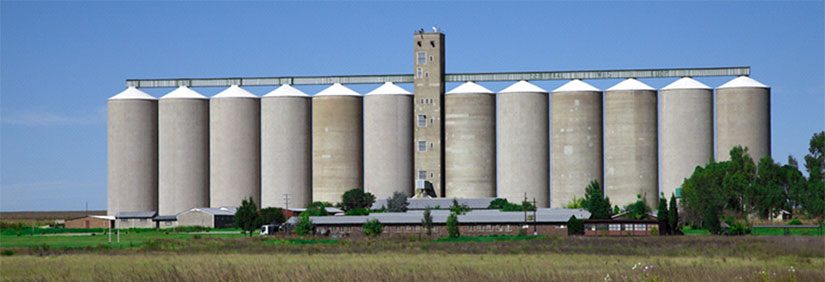Grain Storage Manager Development Programme
Small-scale storage evolved from baskets, jars, and sacks to more sophisticated grain storage bins. These bins kept the crop safe from the elements and elevated from the ground. Over time, innovations have further improved grain bin efficiency, with features like perforated floors for retrofitting existing crop storage to new ones, moisture and temperature control mechanisms and varying bin depths. These innovations have also made grain storage more accessible for different types of properties, homes, and businesses.
Thanks to modern technology, storing grain safely and efficiently is easier than ever. Farmers have their choice of silos, bins, elevators, bunkers, or sheds. Storage capacity also increased over time with commercial business providing sufficiently for the storage of grains on behalf of the farmers. Just as it is in other industries, technology continues to revolutionize agriculture. For grain storage, this means systems with faster fill rates than before, aerator technology, flow retarders, dust suppressors and enhanced safety equipment. Smart technology has led to the development of portable grain monitoring solutions, so grain storage managers can get all the information they need about the conditions inside their storage facilities without manually inspecting them themselves. This is a process that would otherwise take up valuable work time.
Grain storage of the future will continue seeking new and more efficient ways to optimize the storage process and make the environment safer for workers. Smart technology will likely bring advancements such as more sophisticated condition management sensors, agnostic software for troubleshooting, additional robotic elements, and easier ways to harness important storage data to make better decisions for farms and businesses.
Heading up these facilities, being responsible for millions of Rand of grains in storage, is a Grain Depot Manager. An individual with the ability to keep all the threads together, oversee the mechanical effectiveness of the facility; sustain and upgrade the quality of the grain; plan, organize and schedule the flow of grain; keep the team together and motivated and plays a progressively more important role in promoting and marketing the use of the facility amongst farmers in the area.
The demands in terms of risk management, ensuring the safety of all who enters the facilities and sustaining market share amidst growth in on-farm-storage technology and competitor onslaught are huge.
Agribusiness hence need to not only invest in the ability of Grain Depot Managers to continue to meet the ever-evolving demands associated with the job, but also need to pro-actively grow a pipeline of job-ready assistant managers that are able to step-up and take up the management of a facility when the occasion arise.
The Peritum Grain Storage Management Development Programme offers the ideal journey for upskilling Grain Depot Managers. This 10-module programme walks depot managers through topics the likes of Managing grain quality in storage; Managing the grain storage infrastructure; Managing the schedule and movement of grain according to the grain storage cycle; and Mastering legislation associated with grain in storage. The programme also provides for the grain depot managers’ role in growing market share and ensuring customer service and rounds off the skills set with a module on business finance and keep staff inspired. A holistic approach to ensuring a top skill set!
